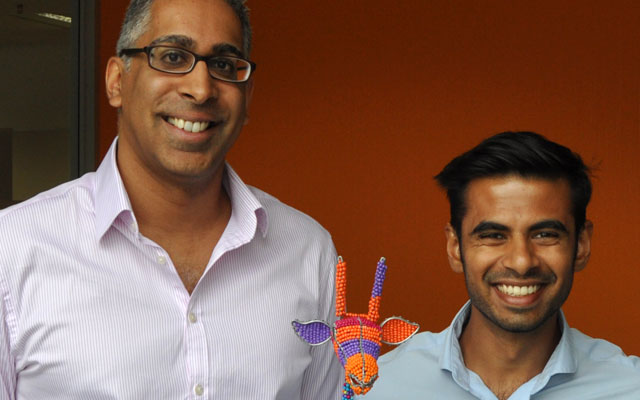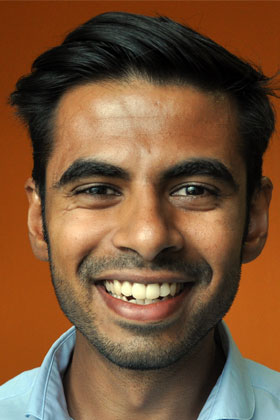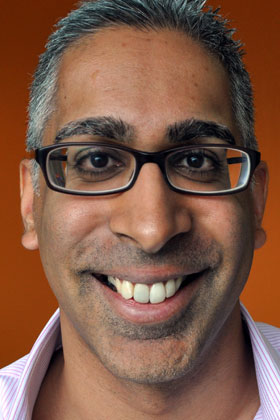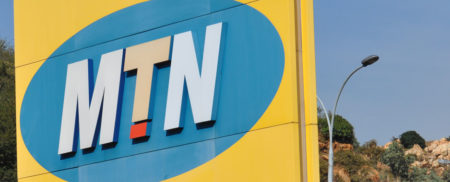
A mobile platform meant to help tackle unemployment in South Africa and founded by former telecommunications consultants has been crowned as the top technology start-up at an international competition focused on emerging markets.
The company, Giraffe, emerged triumphant after beating 64 entrants from 54 countries to take the prestigious title at the Seedstars World global business summit for entrepreneurs in Switzerland.
It has secured an offer from Seedstars of US$500 000 (about R8m) in investment by winning the competition. Seedstars is a global organisation that works to impact people’s live in emerging markets through entrepreneurship and technology.
Giraffe was founded with the aim of matching people to medium-skilled jobs in major business sectors in South Africa. The company, which has been bootstrapped by its founders, is poised to announce its first funding round in the coming weeks.

Founded by former employees of telecommunications consultancy Delta Partners, Giraffe is targeted at both blue-collar and white-collar workers who typically earn between R3 000 and R15 000/month. It then matches them to jobs in corporate South Africa through an intelligent and automated platform.
“There are 9m people in South Africa working in these types of jobs and a further 20m who potentially could participate in this segment of the economy but who are currently unemployed,” says co-founder and CEO Anish Shivdasani.
“Unemployment in South Africa is a huge problem. This is largely because of structural reasons such as slow economic growth and rigid labour laws. But one of the reasons it’s so high is because of access. In the medium-skilled segment, access is particularly problematic,” he says.
Shivdasani says most people in Giraffe’s target segment don’t have PCs or access to broadband at home, and most rely on public transport.
“If you’re a job seeker in Tembisa, you have to go to an Internet café or come to Sandton and submit your CV by going door to door.”
However, almost everyone has a cellphone. That got the founders thinking about a way to use mobile technology to match job seekers with employers.
The company has built a mobile website that works even on basic feature phones and allows job seekers to create a free CV online. They are asked a series of questions about their work experience, their education and other relevant qualifications and skills. The CVs are kept in an easy-to-query database.
Giraffe has kept the sign-up process as easy as possible, taking no more than eight minutes for job seekers to complete, says Shivdasani. It’s also optimised to be as light on data as possible, using just 50kB.
Job seekers’ IDs are vetted against the home affairs database to ensure it’s valid and matches their name. The company also does random checks with candidates’ previous employers, but has found no issues so far.
The company makes money by charging prospective employers for matched candidates.

“Employers who recruit in this segment of the market have not been able to justify cost of a recruitment company,” Shivdasani says. “They get the people, but they don’t necessarily get the right people. They spend a lot of time sifting through CVs and this distracts them from running their business.”
Giraffe has built has algorithm that inputs the requirements from employers and spits out the best candidates based on a range of criteria.
Once candidates are identified, they are automatically SMSed with the location of the job and interview. Those that reply “yes” are given the time and date of the interview. The system then e-mails the employer with the automatically generated list of candidates who are coming for an interview, with names, ages, contact numbers and other pertinent information. It typically selects between seven and 10 candidates for the interview process.
“We have essentially automated sourcing and screening of candidates, as well as contacting them and scheduling job interviews,” says co-founder Shafin Anwarsha, who heads up product development.
Anwarsha claims the automation means that Giraffe can cut traditional recruitment costs by 90% while speeding up the process dramatically.
The service is available only in Johannesburg for now, but Giraffe intends expanding to Durban and Cape Town in the coming months. It hopes to have national coverage by the end of the year.
By the end of last year, Giraffe had already signed up 70 000 job seekers in Johannesburg alone, ahead of its target of 20 000.
What about competition? “No one has cracked the mobile recruitment space yet,” says Shivdasani. “A few companies in Brazil and India have raised millions in investment, but no one has cracked it yet.”
Giraffe is poised to announce its first funding round, but Shivdasani says the Seedstars competition win is already helping raise the company’s profile. “It puts Giraffe on the map. Many investors from many different countries now know about us,” he says.
“Also, given the economic and political context, for a South African start-up to beat all these other emerging markets start-ups … we were super happy about that. Right now there’s doom and gloom everywhere, so to see a South African company win this is great for the country.” — (c) 2016 NewsCentral Media




